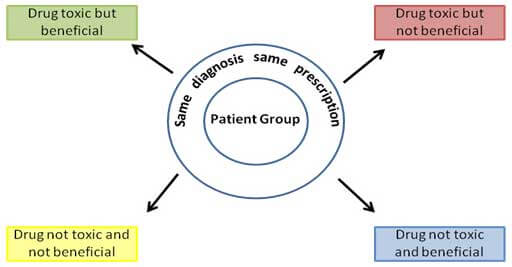It’s far more important to know what person the disease has than what disease the person has. – Hippocrates
Human beings are born heterogeneous in genomic level with no two persons having identical DNAs. Even identical twins do not have the same DNA. No two human are alike and thus “one-size-fits-all” approach to medicine is not acceptable. Moreover, the DNA that we inherit in our birth changes over time depending on the food we eat, the surrounding environment and our lifestyle. Accordingly, we respond differently to the diseases we get and also to the treatment regimens. Thus it is reasonable to say that every disease should be treated differently in different individual and should be tailored according to their genetic makeup for best outcome.
Our body that is constructed with cells, muscles, nerves and organs is coded in the genes. Genes possess genetic blueprints for each and every part of our body and also shows the diseases liable to attack us. In the past several years, several scientific advances have come into focus and the revolution in human genetics is the results of one of such advances. The revolution in human genetics led to improvement in all specialties of medicine. One of them is the recognition that the genetic composition of an individual can be used effectively while treating a patient. The second one is the availability of the human genome sequence and the improvement in technologies. The third impact of scientific advances is the ability to utilize the human genome practically while treating the patients at a very low cost.
The personalized medicine presents the most effective medical treatment that is much ahead of the regular treatments offered by the physicians by “the use of genomic, epigenomic exposure and other data to define individual patterns of disease, potentially leading to better individual treatment.”

In the long run, personalized medicine will eventually reduce disease burden and the treatment can be done more effectively. It will also reduce healthcare costs as medical diagnostics and therapeutics can be selectively tuned to meet the needs of individual patient.